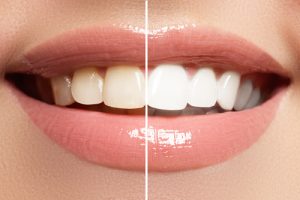How to Get Rid of Bad Breath for Good: Causes and Treatments

Understanding Bad Breath (Halitosis)
Halitosis, or bad breath, can stem from various causes, primarily the growth of anaerobic bacteria on the tongue and around teeth. These bacteria produce sulfur compounds which emit unpleasant odors. Contributing factors include dry mouth, postnasal drip, poor oral hygiene, and conditions like diabetes or gastroesophageal reflux disease (GERD).
Chronic halitosis often results from inadequate oral care but can also arise from gum disease, deep cavities, or improperly fitting dental appliances. It may signal underlying issues with your teeth, gums, or overall health. Consulting a dental professional is essential for identifying the cause and receiving appropriate treatment to manage the condition effectively.
Primary Causes of Bad Breath
To address halitosis, start by understanding its causes. Poor oral hygiene is the primary culprit; food particles that linger break down and foster bacteria. Gum disease, such as gingivitis or periodontitis, also contributes to bad breath. Additionally, dry mouth inhibits saliva production, preventing proper cleaning of food debris and bacteria. These factors are just part of the issue; let’s explore how oral and lifestyle habits can exacerbate the problem.
Oral hygiene and dental issues
Poor oral hygiene is a primary cause of bad breath, or halitosis. Inadequate brushing and flossing leave food debris that fosters anaerobic bacteria, producing volatile sulfur compounds responsible for unpleasant odors. Dental issues like periodontal disease, deep cavities, and gum infections can worsen bad breath by increasing bacteria and inflammation. Ill-fitting dentures or orthodontic appliances may also trap food particles. Regular dental checkups are essential for addressing these problems early, helping maintain fresh breath and overall oral hygiene.
Dietary and lifestyle factors
Your diet and lifestyle significantly impact your breath. Certain foods and habits can worsen bad breath:
- Tobacco: Smoking coats your teeth and mouth, dries them out, damages gums, and can lead to gum disease and halitosis.
- Strong Foods: Garlic and onions release strong odors that enter your bloodstream and affect your breath.
- Healthy Choices: Crunchy fruits and vegetables boost saliva production, helping wash away bacteria.
- Stay Hydrated: Drinking water removes food particles, prevents dry mouth, and reduces bad breath.
By avoiding triggers like dry mouth and gum disease, you can maintain fresher breath.
Medical Conditions That Can Cause Bad Breath
Halitosis can indicate serious health issues. Conditions like diabetes, kidney disease, and gastroesophageal reflux disease can produce persistent bad breath. For instance, diabetes may cause a fruity odor. These conditions can also promote harmful bacteria in the mouth, worsening bad breath. Recognizing halitosis as a potential sign of underlying problems allows for early detection and prompt care, helping you maintain better health.
Sinus, throat, and respiratory infections
Sinus, throat, and respiratory infections are often overlooked but are significant causes of bad breath. Conditions like pneumonia or chronic bronchitis can lead to postnasal drip, allowing mucus to accumulate in the throat and promote bacterial growth, worsening breath odor. Additionally, foreign bodies in the nose or sinusitis can introduce strong-smelling compounds that intensify bad breath. Addressing respiratory infections early can prevent complications and reduce unpleasant odors, improving overall comfort.
Digestive system disorders and systemic diseases
Your digestive system affects your breath. A common issue is gastroesophageal reflux disease (GERD), where stomach acids rise into the esophagus, leading to a sour or sharp breath odor. Health problems like uncontrolled diabetes or kidney disease can hinder toxin elimination. Kidney disease may cause uremia, resulting in a strong ammonia-like mouth odor. Addressing these issues is crucial for fresh breath and overall health.
Diagnosing the Source of Bad Breath
Identifying the cause of halitosis is crucial for effective management. An oral exam by a healthcare provider or dentist can determine if the issue originates in the mouth. If bad breath persists, your provider may investigate other medical conditions that could impact breath odor. Home tests and advanced assessments can help pinpoint the source of bad breath, guiding you on the next steps to take.
Self-assessment techniques
You can easily check for breath odor at home before visiting the dentist:
- Tongue Check: Gently scrape the back of your tongue with a clean tool and smell it to detect any foul odor.
- Morning Test: Check your breath upon waking; it’s usually worst due to dry mouth overnight.
- Taste Clues: A persistent bad taste may indicate bacteria buildup.
- Portable Sulfide Monitors: These devices can quickly assess sulfur levels in your mouth, which cause bad breath.
Regular checks can help identify issues early. If you notice persistent bad breath or an unusual taste, consult your dentist.
Professional dental and medical evaluations
If you have chronic bad breath, it’s crucial to see a professional. Dentists typically begin with a full oral exam to identify potential causes, such as gum disease, food debris, or tongue coatings. They may use tools like gas chromatography to measure volatile sulfur compounds in your breath. You might also need to consult your primary care physician to rule out health issues like GERD or diabetes. Once the cause is identified, doctors can create a personalized treatment plan to address halitosis effectively.
Effective Treatments for Bad Breath
Effective treatments for bad breath go beyond mouthwash; they adopt a comprehensive approach to oral hygiene. Regular brushing and flossing remove food particles and reduce anaerobic bacteria, which often cause halitosis. If the problem persists, consulting a healthcare provider can help identify underlying conditions like gum disease or diabetes. Treatments may include mouth rinses with antibacterial agents such as cetylpyridinium chloride or essential oils to reduce volatile sulfur compounds and freshen breath. Following the right steps significantly improves oral hygiene and maintains a healthy mouth.
Daily oral care routines
Daily oral care is crucial for preventing bad breath and maintaining good hygiene. Brush twice daily with fluoride toothpaste to remove food particles and disrupt anaerobic bacteria. Don’t forget to floss, as it cleans areas that brushing may miss. An antibacterial mouth rinse can provide additional protection against volatile sulfur compounds that cause bad breath. Regular visits to your dentist help catch issues like gum disease early, allowing for prompt treatment.
Professional treatments and interventions
If bad breath persists despite regular brushing and flossing, consult a healthcare provider. They will conduct an oral exam to check for issues like gum disease or stomach problems. The doctor may recommend antibacterial agents, mouth rinses, or other treatments to combat infections. If the bad breath is severe, your primary care physician may investigate underlying health conditions such as uncontrolled diabetes or kidney disease. Identifying and treating these issues is crucial to addressing the root cause of bad breath.
Schedule an Appointment
If you’re suffering from bad breath and struggling to identify a cause, it may be time to consult a professional. Schedule an appointment with Prestige Dental to get insight into your oral health and how to improve it.



